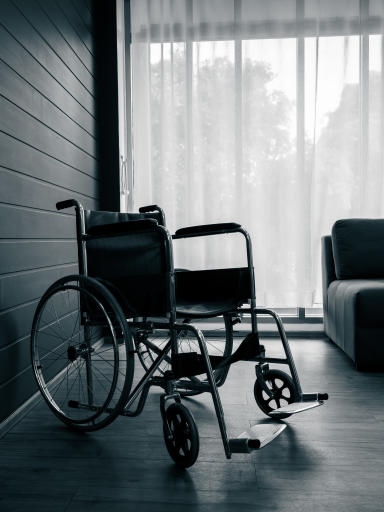How Long Does a Nursing Home Abuse Court Case Take?

Litigation is a long process, so it may not surprise you that nursing home abuse cases take at minimum 1.5 years, if not longer. According to studies, it is estimated that around 10% of our elders will experience some form of elder abuse. This statistic has only grown since the pandemic started in 2020. If you or your family member has experienced any form of abuse while residing in your nursing home, you must report your experience and seek justice. Though the statistics and timeline may seem daunting, each step is important to ensure you get the compensation you deserve. This article will discuss the many steps of a nursing home abuse case, how long it is estimated to take, and why case time varies so significantly. Follow along to better understand what you might experience if you decide to pursue an abuse case in court.
Hiring a Nursing Home Abuse Lawyer
The very first step in the litigation process is to hire your attorney. Though you may feel pressured to get your case into court right away, choosing the correct attorney can sometimes make or break a case. An attorney will guide you throughout the process and ensure you are fairly compensated.
Consultations
First, line up a few attorneys and set up a consultation. Depending on the lawyer's availability, this part should be quick. It is relatively easy to get an appointment since many offices offer consultations via phone or computer. Prepare a list of questions for the attorneys, including their availability, rates, and experience.
Contract and Interview
Once you have found an experienced attorney and they have agreed to take on your case, there will be a second, more in-depth interview. Here, they will discuss the case details, laws, contract for their services, and any questions you may have regarding the experience.
The Work Begins
Once all of the paperwork is signed and the hiring process is complete, the real work begins. The attorney will start the investigation process, gathering medical and facility records, witnesses, and other evidence relevant to your case. Gathering the necessary information is a time-consuming process, taking several months.
What’s The Difference Between a Nursing Home Abuse Attorney and a Personal Injury Attorney?
A nursing home abuse attorney is a personal injury lawyer with expertise and case experience in this specific area. Every nursing home abuse attorney started out defending personal injury cases. As a result of successfully defending victims of elder abuse, they have built a portfolio of cases and learned the ins and outs of the laws that best support their clients.
Hearings
An attorney can negotiate a settlement at any point in the litigation process. The attorney will send a demand to the other party that outlines your desired compensation. They can either reject, accept, or counter this demand. The negotiations may go back and forth through the discovery period, but ultimately, if a settlement cannot be reached, the judge will likely order a mediation hearing. The parties can also do this if they both agree to appear for mediation. Mediation is where both parties sit down with a neutral, professional mediator and negotiate a resolution to the claim. The case will proceed to trial if an agreement can’t be reached.
When Will My First Hearing Be?
The first official meeting will likely be the mediation hearing. This hearing occurs after most of the discovery work has been completed and both sides have a better idea of the case details and evidence supporting their claim. As we will discuss below, the discovery period can take anywhere from six months to one year. The mediation appointment can occur anytime within that period.
Why Do Nursing Home Abuse Lawsuits Take So Long To Resolve?
There are a lot of steps to the litigation process, and it’s nearly impossible to cut corners. From ensuring the evidence in your case is iron-clad, the back and forth between the two parties, and the court schedule itself, there are a lot of factors that influence how long your case may take. The section below will break down some of the common setbacks for nursing home abuse cases.
The General Court Process
The process of litigation itself is time-consuming. Each step is vital to the success of the case and, therefore, necessary and worth the wait. During the more in-depth interview with the attorney, you can ask for an estimate of how long the case may take. While the estimate may not always be accurate, the attorney will have the best chance at predicting a time frame for your case.
Discovery Period
One of the most time-consuming periods in a case is the case preparation and investigation, known otherwise as the discovery period. This portion of the case has a minimum of six months but can be extended a year or more if either party requests extra time.
Scheduling (and Rescheduling)
Due to the large number of cases that settle outside of court, judges will often schedule many cases in any given week. However, that means that if your case goes to trial, it could be rescheduled to avoid overlap. Unfortunately, when the court date approaches and the number of cases becomes set in stone, rescheduling can put your case a couple of months farther out each time.
Continuances
Similarly, either party can request a postponement of the hearing or trial at any point. This is called a continuance. Continuances may be used by the opposing party to draw out the case or simply to reschedule if either party is unable to meet on the designated court date.
Additional Witnesses
As the victims in nursing home abuse cases cannot always advocate for themselves, it is common to see witnesses give testimony to support the defendant. Additionally, if the attorney is having trouble proving liability or the other party does not accept liability, medical staff and other expert witnesses may need to be called to bolster the case's validity.
Appeals
Once the judge has decided on a case, the losing party can appeal the judgment. This means that a higher court will look at the details and judgment and potentially overturn the case, delaying the resolution until a second opinion has been reached.
How To Find the Nursing Home Abuse Lawyer
As mentioned above, finding an attorney can be lengthy and confusing if you are unsure where to start. Expertise.com has an extensive directory of nursing home abuse attorneys nationwide. We search for the highest-rated attorneys in your community through public databases and customer referrals. Next, we scour that list for the providers who have gone above and beyond in their areas of expertise. Once they have passed our selection process, they can be listed in our database for you to browse confidently. Check out our directory here to start your search for a nursing home abuse attorney.
Expertise.com StaffAuthor
Step into the world of Expertise.com, your go-to hub for credible insights. We don't take accuracy lightly around here. Our squad of expert reviewers, each a maestro in their field, has given the green light to every single article you'll find. From rigorous fact-checking to meticulous evaluations of service providers, we've got it all covered. So feel free to dive in and explore. The information you'll uncover has been stamped with the seal of approval by our top-notch experts.




